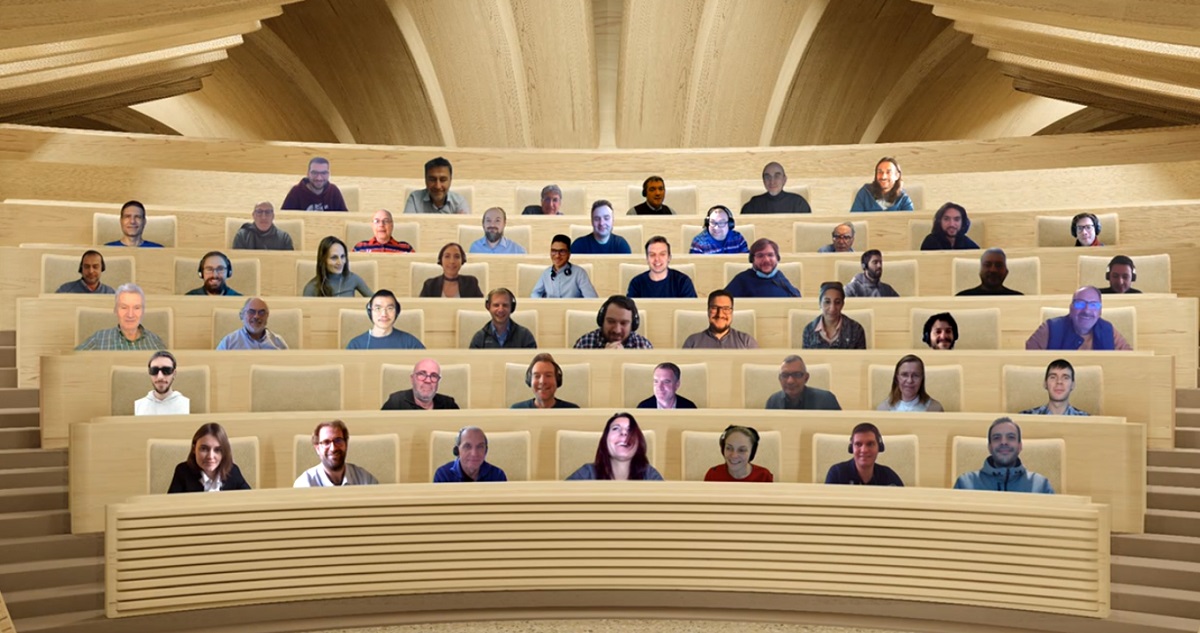F4E hosts its first Neutronics Workshop

Some of the attendees to the F4E Neutronics Workshop held in February 2022. © F4E
The first F4E Neutronics workshop was organised and hosted remotely by F4E during the first week of February. The virtual event, which lasted three half-days, served as a platform for dissemination and discussion of nuclear fusion analysis developments, results and expertise. Over 80 people participated, mostly from Europe but also from the other countries contributing to ITER. They were affiliated to 18 different organisations, including fusion laboratories, ITER Organization, ITER Domestic Agencies, academia and industry.
Neutronics is a key discipline in the design of fusion technology. Experts are interested in knowing well the behaviour of neutrons in this kind of machines for a number of reasons. For example, neutrons generated in deuterium-tritium plasmas (such as those in JET and ITER) penetrate deeply in the surrounding components of the machine. They also generate tritium through reactions with lithium in a breeding blanket. In addition, neutron measurements provide important information about plasma parameters. Neutrons also cause damage to the materials, which has impact in the performance and lifetime of components. Finally, it is indispensable to know the amounts of radiation exposure for the safety of workers and the public.
Johannes Schwemmer, F4E Director, kicked off the workshop with a welcoming address. He highlighted the importance of the field and the value of this kind of technical meetings to foster communication and collaboration among experts. He noted how neutronics underpins the safety demonstration of ITER, showing that ITER is in line with the requirements of the nuclear regulator.
The technical programme, prepared by Raul Pampin and Marco Fabbri, both from F4E Analysis and Codes Group, consisted of 21 presentations organised into three areas, plus one discussion session. “Discussions focused on the development of methods and algorithms to simulate the unique conditions of fusion devices, and of ITER in particular, thereby enabling reliable calculations in an increasingly efficient way,” explains Raul Pampin. Experts also identified future needs and opportunities, such as experiments to validate the complex methods being developed.
Link to presentations: https://f4e.sharepoint.com/:u:/s/F4E-ExternalSharing/EWCzgQtJxO9JklIGBbLyZ7YB2yigitVNt8euXbm16j1NZQ?e=THkBdK
Link to videos: https://f4e.sharepoint.com/:u:/s/F4E-ExternalSharing/EX8q-rSUQqJJgchAGyY0S4sB0toS4gLQmpFzMeLM6orTvQ?e=ayTmMV